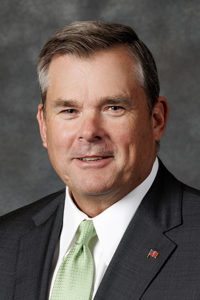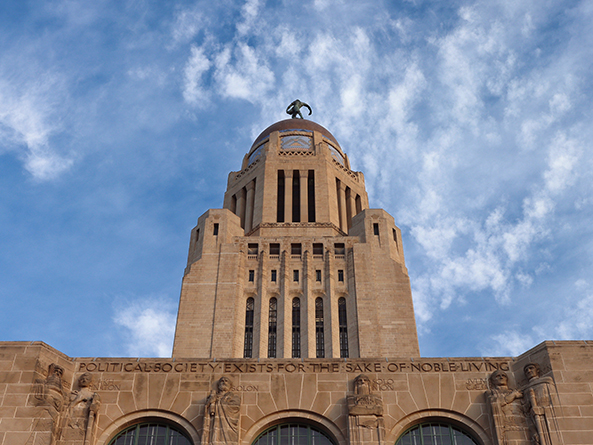Bill would grant state auditor casino revenue oversight
The state auditor of public accounts would be able to scrutinize the books of authorized Nebraska gaming operators under a bill heard by the General Affairs Committee Feb. 10.

Currently, the Nebraska Racing and Gaming Commission’s rules and regulations require an annual independent audit of gaming operators to ensure that the proper amount of state tax revenue is being remitted.
LB280, introduced by Elkhorn Sen. R. Brad von Gillern, would expand and codify those requirements in state law. Under the bill, each gaming operator would pay for an independent audit of its financial transactions and affairs, which would be filed with the commission and with the auditor of public accounts.
The bill also would allow for review of those audits by the state auditor and give the auditor authority, at his or her discretion, to examine the books, records, funds and accounts of an authorized gaming operator. The auditor also could order an additional audit.
The expense of the review by the state auditor would be paid from the Nebraska Racing and Gaming Commission’s Racetrack Gaming Fund.
Describing the current process as “basically self-reporting,” von Gillern said the commission lacks the resources and expertise to review gaming operators’ annual audits and the state auditor lacks the authority in state law to audit private entities.
The state’s casino gaming industry produced $29 million in tax revenue in 2024, von Gillern said, and gross revenues for January of 2025 alone total nearly $18 million. Of the tax revenue generated by gaming operators, 70% is dedicated to property tax relief, he said.
“LB280 is intended to ensure that the state of Nebraska is receiving the full amount of gaming taxes to which it’s entitled under [state] law,” von Gillern said.
Jeff Schreier of the Nebraska Office of Public Accounts testified in support of the proposal on behalf of the office and State Auditor Mike Foley. History indicates that entities are less likely to engage in improper behavior if they know they are subject to the office’s scrutiny, he said.
“LB280 could best be summarized in the words of President Ronald Reagan: ‘trust but verify,’” Schreier said.
Nate Grasz, executive director of the Nebraska Family Alliance, also testified in support of the proposal. The group opposes gaming, he said, but supports greater oversight of casinos because of the “serious social and economic consequences” they have on the state.
“When voters approved casino gambling at our licensed race tracks in 2020, they did so with the promise of property tax relief,” Grasz said. “By requiring annual independent audits to be filed with our auditor of public accounts, we can ensure greater levels of oversight and accountability and transparency of the gambling industry in our state.”
Speaking in opposition was Lynne McNally, representing WarHorse Casino. Current regulations go far beyond self-reporting, she said, and the commission already has access to all gaming data at authorized casinos.
“This would result in a triple audit,” McNally said. “We already pay for two audits — we pay for the [commission] to do an audit; we pay for our own audit.”
Korby Gilbertson, representing the Nebraska Society of Certified Public Accountants, also opposed LB280. She said the bill implies that there are CPAs who are “acting in a nefarious manner” or aren’t performing audits appropriately.
CPAs are rigorously trained and adhere to high ethical standards, she said.
“These standards are designed to ensure that auditors maintain independence, objectivity and commitment to the public interest, regardless of whether they’re in public practice or are employees of an agency such as the state auditor’s office,” Gilbertson said.
The committee took no immediate action on LB280.


